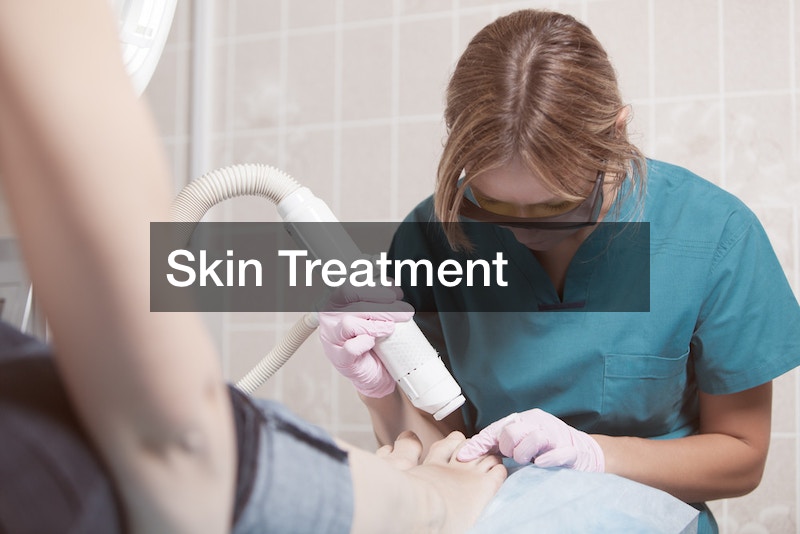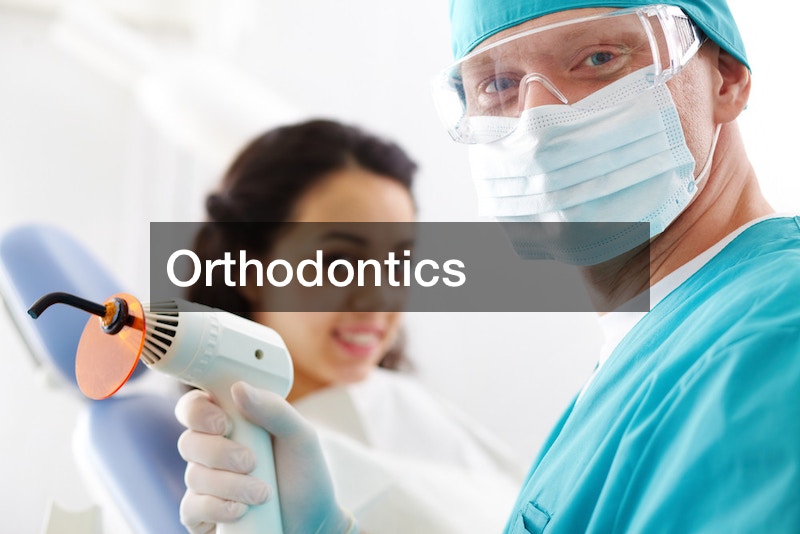
Unlocking the potential for optimal well-being often requires professional interventions that address specific aspects of our health. In this article, we explore a range of professional treatments that contribute to your overall wellness. Continue reading to discover the diverse options available to nurture your holistic health and unlock a greater sense of well-being.
Anxiety Therapy

Anxiety treatment encompasses a wide range of approaches aimed at alleviating symptoms and improving overall well-being for individuals struggling with anxiety disorders. One commonly utilized form is psychotherapy, which includes cognitive-behavioral therapy (CBT), exposure therapy, and other modalities. These professional treatments help individuals understand and modify their thoughts, behaviors, and reactions to anxiety triggers.
Medications such as selective serotonin reuptake inhibitors (SSRIs) or benzodiazepines may be prescribed to manage symptoms in severe cases. Complementary and alternative therapies like mindfulness meditation, yoga, and acupuncture have also gained recognition for their potential benefits in reducing anxiety. Lifestyle modifications, including regular exercise, healthy sleep patterns, and stress management techniques, are also essential components of anxiety treatment.
Support groups and peer support networks provide valuable opportunities for individuals to share experiences, gain insights, and foster a sense of community. It’s important to note that treatment plans are highly individualized, and a combination of approaches may be utilized to address each person’s unique needs. With a comprehensive and personalized approach, individuals can find relief, enhance coping skills, and regain control over their lives.
Skin Treatment

Dermatologists are skilled medical professionals who specialize in providing professional treatments and addressing various skin concerns. With their extensive training and expertise, they are equipped to diagnose and treat a wide range of skin conditions, ensuring optimal skin health for their patients. One area where dermatologists excel is in the field of acne reversal treatment.
They carefully assess the underlying causes of acne and develop personalized treatment plans to combat breakouts, reduce inflammation, and prevent scarring. Through a combination of topical or oral medications, in-office procedures like extractions or chemical peels, and tailored skincare regimens, dermatologists effectively target acne and help patients regain clear, healthy skin. Apart from their expertise in acne treatment, dermatologists offer numerous other benefits. They are capable of diagnosing and treating various skin conditions such as eczema, psoriasis, dermatitis, and rosacea.
Dermatologists also play a vital role in conducting skin cancer screenings, providing guidance on sun protection, and offering cosmetic procedures to enhance skin appearance. Whether it’s addressing medical concerns or pursuing cosmetic enhancements, dermatologists have a comprehensive approach to skincare that covers both the health and aesthetic aspects. With their dedication to promoting skin health and their ability to provide preventive care and education, dermatologists empower individuals to achieve their desired skin goals and maintain overall skin wellness.
Orthodontics

Orthodontics, a specialized branch of dentistry, offers a range of professional treatments that contribute significantly to oral health. By seeking the expertise of a local orthodontist, individuals can benefit from improved dental alignment, enhanced bite functionality, and overall oral well-being. According to the American Association of Orthodontists, an estimated 4.5 million people in the United States wear braces or other orthodontic appliances. This statistic highlights the widespread recognition of orthodontics as an effective solution.
Orthodontic treatments, such as braces or aligners, can correct crooked teeth, crowded teeth, gaps, and malocclusions. These interventions not only enhance smile aesthetics but also promote proper tooth alignment, which is essential for optimal oral health. Straighter teeth are easier to clean, reducing the risk of tooth decay, gum disease, and other dental problems. In fact, the American Dental Association reports that orthodontic treatments can help prevent oral health issues like tooth loss, TMJ disorders, and abnormal wear of tooth enamel.
Moreover, orthodontists employ their expertise to create personalized treatment plans tailored to each patient’s unique needs. Through thorough evaluations, including X-rays and digital scans, they develop comprehensive strategies to address specific dental concerns. Orthodontists may recommend braces, clear aligners, or other orthodontic appliances to gradually shift teeth into proper alignment. Regular check-ups and adjustments during the treatment period ensure progress and optimal outcomes.
Electrolysis Treatment
Electrolysis treatment is a professional method for permanent hair removal that involves the use of electrical current to target individual hair follicles. During the procedure, a trained electrologist inserts a fine needle or probe into the hair follicle and delivers a small electrical current to destroy the follicle, preventing future hair growth. The process is precise and effective, making it a popular choice for individuals seeking long-lasting results. As one of the popular professional treatments, electrolysis can be performed on various areas of the body, including the face, legs, underarms, bikini line, and more.
There are three main types of electrolysis methods: galvanic, thermolysis, and blend. Galvanic electrolysis uses a chemical reaction produced by direct current to destroy the hair follicle. Thermolysis, also known as high-frequency or short-wave electrolysis, involves the use of alternating current to generate heat and disable the hair follicle. Blend electrolysis combines both galvanic and thermolysis methods, utilizing a combination of heat and chemical reactions for effective hair removal. The choice of method may depend on factors such as individual hair and skin type, treatment area, and personal preference.
The cost of electrolysis treatment can vary depending on several factors, including the size of the treatment area, the number of sessions required, and the geographical location of the practitioner. On average, the cost of electrolysis ranges from $50 to $150 per session. However, it’s important to note that multiple sessions are usually necessary to achieve permanent hair removal, as hair grows in cycles and not all follicles are active simultaneously. Therefore, individuals should consider the overall electrolysis treatment plan, which may span several months or even longer, when budgeting for the procedure.
Chiropractic Care
Chiropractors play a vital role in pain management as specialized healthcare professionals. They focus on the diagnosis and treatment of musculoskeletal disorders, particularly those related to the spine. While not medical doctors, chiropractors receive extensive training in chiropractic care, which emphasizes manual adjustments and manipulations to alleviate pain and promote overall wellness. A professional pain management doctor may employ chiropractic care as an alternative or complementary approach.
Chiropractors are skilled in treating a variety of conditions and symptoms related to the musculoskeletal system. One common area of focus is neck pain treatment, which can be caused by factors such as poor posture, muscle tension, or underlying spinal misalignments. Chiropractors utilize their expertise to perform adjustments and manipulations to the neck and spine, relieving pain, restoring proper alignment, and promoting healing. Beyond neck pain, chiropractic care can also benefit individuals with back pain, headaches, joint pain, sciatica, and various other musculoskeletal conditions.
Chiropractic adjustments involve different techniques performed by chiropractors as part of their professional treatments. These techniques may include spinal manipulation, spinal mobilization, and manual therapies such as soft tissue manipulation and stretching. The specific technique used depends on the patient’s condition, preferences, and the chiropractor’s expertise. The goal of chiropractic adjustments is to improve joint function, alleviate pain, reduce inflammation, and restore proper alignment to the spine and other areas of the body.
Addiction Treatment

Substance abuse programs offer professional treatments designed to help individuals overcome addiction and regain control of their lives. These programs typically operate in various settings, such as inpatient or outpatient facilities, and provide a structured and supportive environment for individuals on their recovery journey. The primary goal of substance abuse programs is to address the physical, psychological, and social aspects of addiction, promoting long-term sobriety and overall well-being.
These programs often begin with an assessment to determine the individual’s specific needs and create a personalized treatment plan. Detoxification, the process of safely managing withdrawal symptoms, is often the first step in substance abuse programs. Following detox, individuals engage in various therapies, such as individual counseling and group therapy, to explore the underlying causes of addiction, develop coping mechanisms, and acquire relapse prevention skills.
Substance abuse programs provide a range of benefits. First, they offer a supportive and structured environment where individuals can receive professional guidance and support throughout their recovery journey. These programs often have experienced healthcare professionals, including addiction counselors and therapists, who can address the physical, emotional, and mental health aspects of addiction.
Additionally, substance abuse programs promote a sense of community by connecting individuals with peers who understand their struggles, fostering a supportive network for ongoing recovery. These programs also educate individuals about addiction, helping them understand its impact on their lives and providing tools for managing cravings and triggers. Overall, substance abuse programs offer comprehensive professional treatments that empower individuals to break free from addiction and establish a solid foundation for a healthier and more fulfilling life.
Therapy Treatments
Therapy treatments encompass a broad range of professional interventions. These treatments are aimed at improving physical, mental, and emotional well-being. Therapy treatments are administered by trained therapists or healthcare professionals who utilize evidence-based practices to support individuals in their healing and growth journeys.
Professional treatments such as psychotherapy, physical therapy, occupational therapy, speech therapy, hydrotherapy, and others are tailored to address specific needs and conditions. Psychotherapy, for example, involves one-on-one sessions with a therapist to explore and resolve emotional challenges, improve coping strategies, and promote mental health. Physical therapy focuses on rehabilitation, pain management, and physical function improvement through exercises, manual techniques, and other modalities.
Therapy treatments offer numerous benefits, including symptom reduction, improved functioning, increased self-awareness, enhanced coping skills, and overall well-being. These treatments are personalized, evidence-based, and tailored to the unique needs of each individual. They provide a supportive and professional environment for individuals to address their challenges, learn new skills, and make positive changes in their lives.
Water filtration plays a significant role in maintaining clean and safe water environments in therapy settings. Proper water filtration systems are essential to ensure hygienic conditions and prevent the spread of waterborne diseases. While most therapy treatments themselves don’t involve water filtration, healthcare facilities offering therapy services prioritize the implementation of effective water filtration systems to provide a safe and healthy environment for patients.
Tips for Securing Health Insurance
Securing health insurance is an essential step for you to access the professional treatments needed to maintain your well-being. Understanding the available coverage options is the first step toward obtaining health insurance. You should familiarize yourself with different types of health insurance plans, such as employer-sponsored plans, individual plans, and government programs like Medicaid and Medicare.
According to Medicaid, over 93 million individuals were enrolled in Medicaid and CHIP in the 50 states and the District of Columbia in 2023. Assess your eligibility for each option based on factors such as income, age, and employment status. Understanding eligibility for these programs is vital in choosing the right coverage option.
Researching and comparing different insurance plans is crucial to find the most suitable coverage for your needs. Take the time to explore factors like premiums, deductibles, co-pays, and the extent of coverage for health treatments. Comparing plans based on cost and coverage will help you make an informed decision.
Consider seeking guidance from Medicaid planners if you qualify for Medicaid. These professionals specialize in navigating the Medicaid system and can provide valuable assistance in understanding eligibility requirements, available benefits, and the application process. Their expertise will help you maximize your Medicaid coverage, including coverage for professional health treatments.
Exploring healthcare marketplaces or exchanges is another avenue to find suitable health insurance. These platforms offer a range of plans and often provide subsidies or tax credits to lower your monthly premiums. Take advantage of these marketplaces to compare different plans, and assess their benefits, costs, and coverage for health treatments.
Lastly, prioritize preventive care when choosing a health insurance plan. Look for plans that emphasize preventive services like routine check-ups, screenings, and vaccinations. Investing in preventive care can help you detect potential health issues early on and reduce the need for extensive professional treatments in the future.
Professional treatments are integral to enhancing your overall wellness. The range of therapies available caters to various aspects of your well-being. Accessing these treatments allows you to address physical, mental, and emotional health concerns effectively. Prioritize your wellness and seek appropriate professional care to improve your quality of life and promote a healthier, happier state of being.
